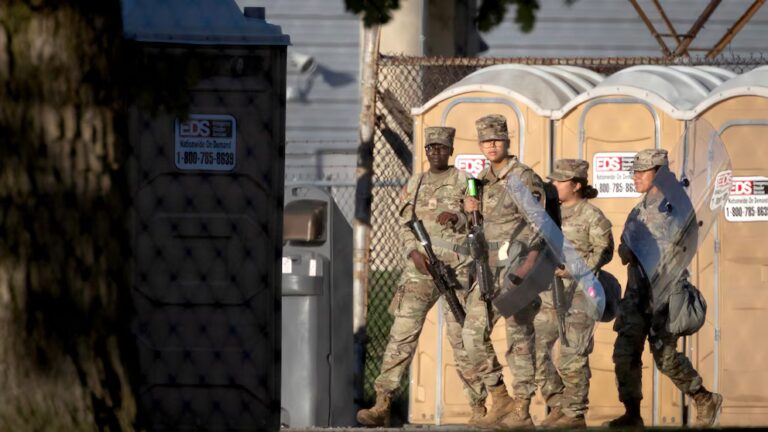
A record number of women are running to be the next president of the United States, but Americans still don’t seem to think the country is ready for them, according to a new Daily Beast and Ipsos poll.
Only 33 percent of voters surveyed believed their neighbors would be comfortable with a woman in the Oval Office, despite 74 percent saying they themselves would be comfortable with a woman president. The poll, which was conducted in early June, also showed 20 percent of Democratic and independent men also agreed with the sentiment that women were “less effective in politics than men.”
It should be said, as Harvard political scientist Ryan Enos pointed out on Twitter, there’s some inherent “murkiness” in this opinion poll, because it’s impossible to tell how much respondents are conflating their own opinions with their peers’ — although this is one way pollsters get at opinions voters are possibly embarrassed about holding.
But even beyond what the poll might say about voters’ own beliefs, that murkiness is also a takeaway.
Among Democrats and independents, 82 percent of respondents said their top priority in picking a Democratic nominee was based on who they thought could beat President Donald Trump — so whether people think their neighbors will support a candidate is statistically important on its own.
While it’s still early in the presidential election cycle, we’ve seen “electability” play a role over and over in how Democrats are approaching the presidential primary. And this poll gives greater insight into how factors like gender and identity — whether or not they are actually rooted in reality — could play a factor in making those determinations.
Democrats are hung-up on electability
So far, poll after poll has shown Democrats prioritizing “electability.” In other words, it’s really important to Democrats that whomever they pick will be able to actually beat Trump, sometimes even more so than if their beliefs match up with the candidate’s.
So there’s a big difference between what Democratic voters say they want in a president, and who they are supporting. A recent survey from Pew Research Center suggests more Democrats might prefer their 2020 candidate wasn’t an old white man than those who would. Yet former Vice President Joe Biden remains the heavy favorite in early polls, followed most consistently by Sen. Bernie Sanders — two septuagenarian white men. Sen. Elizabeth Warren has been rising in the polls, but that’s been a fairly recent development.
As Vox’s Li Zhou has reported, the emphasis on electability goes a long way to explain why so many Democrats are gravitating toward men: “the expectation of who can win is inextricably wrapped up in the knowledge of who has won,” Zhou writes.
“Metrics like authenticity and likability and electability are just code that we use against candidates who are not like what we are used to,” Christina Reynolds, a spokesperson for Emily’s List, a political organization that supports women candidates, previously told Vox.
Elected women are actually more effective in political office
The pervasiveness of sexism in American politics actually creates a paradox in government — elected women are actually more effective in office.
Political scientists Sarah Anzia and Christopher Berry from University of California, Berkeley and University of Chicago, respectively, call it the “Jill Robinson effect” — after Jackie Robinson, the first black baseball player who became one of the biggest stars in the game.
“Robinson had to be better than almost any white player in order to overcome the prejudice of owners, players, and fans,” Anzia and Berry write.
In their 2011 study, they argue there’s a parallel with women in politics; because women have to work harder to prove themselves in the electoral process, they actually perform better when they get into office as well:
Since 2009, as Sarah Kliff reported for Vox, the average female legislator in Congress had 2.31 of her bills enacted, compared with men, who turned 1.57 bills into law. And on average, women lawmakers were able to secure 9 percent more in funding for their congressional districts than their male colleagues. All told, districts represented by women received $49 million more per year than districts represented by men.
A significant percentage — 20 percent — of Democratic and independent male voters don’t see women as effective in politics; this speaks to the challenges many of the 2020 candidates are facing. Voters have had only one example of a female nominee for a major political party, Hillary Clinton. And if the polling around gender, and electability has shown anything, Clinton’s loss clearly remains a factor for the women running now.
Sourse: vox.com






